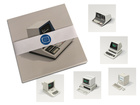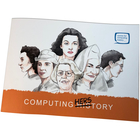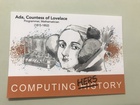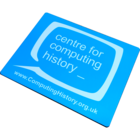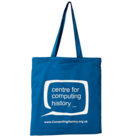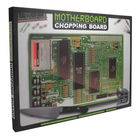
| Home > LEO Computers > LEOPEDIA > Oral & Narrative Histories > Bob Gibson: Interview |
Bob Gibson: Interview
| Home > LEO Computers > LEOPEDIA > Oral & Narrative Histories > Bob Gibson: Interview |
Copyright
Leo Computers Society
Interviewee: Bob Gibson DOB: 18th May 1927, died: August 2016
Interviewer: Martin Garthwaite
Role in LEO: Manager training and customer support
Joined LEO: February 1956
Abstract: Trained as electronic engineer as part of National Service. After working as an electronic research engineer in Civil Service, recruited by LEO as trainee maintenance engineer. Took responsibility for training customer engineers and rose to oversee all LEO training as well as managing engineering maintenance services/ Briefly left LEO to become management consultant but returned to become head of customer services for EELM. Retired 1988. Copyright: Bob Gibson and LEO Computers Society. Restrictions: None known
(Recording to be added.)
Date : UnknownTranscript : LEO COMPUTERS LIMITED - Oral History Project Interview with Bob Gibson by Martin Garthwaite [Martin Garthwaite]: Excellent. Thank you very much for taking the time to speak to me today. As you know this is the, the LEO Computer Society is doing an Oral History of the early days of LEO, and the people that were involved in it. The aim of this interview is really to collect your recollections of those days and make then available in an archive for future academics and anyone that's interested. So Bob tell me, where you were born and when? . And what was the occupation of your father and mother? Education? [Bob Gibson]: I was born on May the 18th 1927 in Richmond, Surrey. My father was a civil servant, and my mother was not working. I went to a school in Dovercourt where we lived, Dovercourt, Essex. And the school is called Harwich County High School. The school was evacuated during the war, and I left school at sixteen with a school certificate and matriculation. History was my favourite subject, and it's the one I did best in the examinations. I was preparing to go into the army under a special scheme for sending people to college to, and then to become engineering officers. I did National Service but it was delayed because I was called to join an Engineering Cadetship Scheme. And we were sent to college – Bradford Technical College, now Bradford University - for eighteen months to take the equivalent of a degree course. After that we were sent back to the army to complete my National Service. [Martin Garthwaite]: After the army how did you find a career? [Bob Gibson]: I joined the Civil Service and was sent to a naval research establishment at Weymouth in Dorset where I was an Experimental Officer working on submarine warfare and submarine detection and anti-submarine warfare. [Martin Garthwaite]: Real cutting edge research? [Bob Gibson]: Yes, mainly electronics based. I took my degree course in electronics really. [Martin Garthwaite]: Whilst you were in the Civil Service, had you come across computers or heard of them? [Bob Gibson]: I first heard of them sometime around the early fifties, when I read an article by John Pinkerton about LEO I. [Martin Garthwaite]: How did you find yourself working at Lyons? [Bob Gibson]: I left the Civil Service at the end of 1954, because I wasn't happy with the prospects, and joined a private electricity company in London. I wasn't too satisfied with work or prospects there. Then at the end of 1955 I saw an advertisement for training maintenance engineers with LEO Computers, at Lyons, and I applied for the job and got it, joining in February 1956. [Martin Garthwaite]: So what did the job of a maintenance engineer involve? [Bob Gibson]: We just had the one computer, that was LEO mark I at Cadby Hall, and it involved, testing the computer each day to make sure all the parts were working. And then attending to it when it broke down, which it frequently did, and get it going again. The whole computer was made up of a lot of assembled units and usually involved finding the faulty unit and either changing it or, or repairing it. There was quite a lot of work to do actually just to keep that one computer going, [laughs]. [Martin Garthwaite]: I can imagine. How quickly could you find the particularly faulty units when something broke down? Were there rules of thumb that you used to find the fault? [Bob Gibson]: There were there were procedures - certain tests. We had quite a battery of tests which could narrow down the part of the computer that was faulty. And they helped a great deal, so it usually didn't take more than about fifteen, twenty minutes. [Martin Garthwaite]: As a maintenance engineer, were you working directly under Pinkerton? [Bob Gibson]: I was working at that time under the senior maintenance engineer called Peter Mann. And that went on until the end of 1956, and during the autumn of ’56 we had sold our first LEO mark II computers to W.H. Wills, the tobacco company. And at that time, when they sold a computer, the customer had to supply their own maintenance engineers. Wills sent their engineers to us around the autumn of 1956 and I was given the job then of training them. So I stopped being a maintenance engineer and became a sort of instructor to train the customer’s own engineers. [Martin Garthwaite]: How long would a training course for a new engineer, typically last? [Bob Gibson]: At that time it was all ad hoc. Training involved just, being with them every day. And it took, I suppose, about a month. They were all electronic, or electrical engineers already, and it took about a month or two. At the end of 1956 I was transferred, and became directly under the managing director, T.R. Thompson. And because he saw that there was going to be a, an increasing demand for this training of the customers’ engineers as we sold more computers, and he decided that we needed to set up a proper training school, and this was done at Minerva Road. I went to Minerva Road in early January ’57 to set up this new purpose built training school. We had our own classroom for giving lectures, and we had a space to build a laboratory with computer units for giving them practical work. But I was also made responsible for unit testing parts of the computer, as well as training. And then I was asked to take over the job of personnel manager for the staff at Minerva Road. And then early the next year, I was asked to take over the full training for LEO, including training for programmers and operators, because Doug Comish who had been doing that job wanted to move on to become a marketing person. So I moved to Hartree House, I think about early ’57 and became responsible for the overall training, covering all of the activities - engineering, operating, and programming. I had to work pretty long hours. [Martin Garthwaite]: Were there any feelings in those early days that LEO was at the forefront of business and computer innovation? [Bob Gibson]: Oh yes, absolutely, yes. We knew we had produced the first commercial computer in the world. And we knew at that time the only competition, and this was coming along slowly, was IBM, and Manchester (Ed: Ferranti) had a computer but it was for scientific work. And the other firms Hollerith and Powers-Samas had calculators. (Ed: Bob Gibson is referring to the situation in the UK) So that we were standing out alone, so to speak, and that was well known during the 1957/58 period. So we felt we were the pioneers. And it was exciting in the sense it was very hard work. Although what happened, sometime around ’57 Peter Mann left the company, he had been the senior maintenance engineer on LEO I. He left the company and at that time we had a LEO II computer ourselves at Hartree House, as well as about four or five computers out with different customers. And I was asked to take over the whole of the engineering maintenance work, covering all computers as well as remaining personnel and training manager. So I became personnel, training and maintenance manager, rather queer combination of jobs. I was extremely busy, especially as I was working directly to T.R. Thompson who was very demanding boss with Incredibly high standards. But I liked him and got on very well with him. We used to have lunch together quite often. [Martin Garthwaite]: So what do you remember most of T.R. Thompson? [Bob Gibson]: I suppose what I remember most when he, unfortunately he resigned and we had a special party to celebrate his time with the company. And I thought that it was very sad but very memorable, and I’ll never forget how sad I was to see him go, it was a great pity. That was after the merger with English Electric when he had to take a number two position, and I don't think he ever liked being in a number two position, he always wanted to be the top man and he was never happy working under the English Electric LEO Marconi Managing Director Wilf Scott [Martin Garthwaite]: Yes, because the English Electric merger was originally sold to LEO employees as a merger. Whereas I believe in fact it, it was a takeover from their perspective. [Bob Gibson]: It was indeed, it was a takeover and I was heavily involved in that process because, we had to sort out the pension plan and I was the representative from the LEO side on a committee which looked at the pension plan and the terms and conditions towards staff. I went to several meetings and sort this out. Unfortunately, as I always remember at the end of it T.R. Thompson wasn't very happy with some our conclusions and he got very upset about that. But he understood - well I don't know whether he understood - we just had to compromise, we couldn't, as you said, we were really taken over, and we didn't have a lot of muscle power in the negotiation for the terms and conditions of staff. But I thought we did fairly well out of it. [Martin Garthwaite]: You mentioned that you, earlier that you were an instructor, so that meant you worked with LEO customers. Did you work with many LEO customers [Bob Gibson]: When I was in charge of the maintenance side as well as the training and personnel side, I had to go out and deal with the major problems that arose. Sometimes we had major problems which arose and customers tried, but their own engineers couldn't deal with, and I had to take one of our engineers with me. And I can remember going to Stewarts &Lloyds, who had one of our computers, and also Dunlop’s who had one, and Fords. And I can remember going there and trying to appease the rather angry customers that their machine wasn't working properly. But together with the engineer we managed to fix the problem in every case. [Martin Garthwaite]: Was this a regular occurrence? [Bob Gibson]: I would say this happened every month or two. [Martin Garthwaite]: Going back to John Pinkerton, what are your recollections of working with him? [Bob Gibson]: That was at Minerva Road when I was in the engineer training job. I didn't actually come into much contact with him, just occasional. So I can only recollect that I respected him highly and I thought he was a very nice chap actually - a very pleasant gentleman. [Martin Garthwaite]: As part of your initial role as a maintenance engineer, what sort of training did you receive? [Bob Gibson]: Nothing at all. It was all about picking it up myself. At the time when I joined there was just Peter Mann, and two or three other chaps - John Winterbottom, Frank Walker, I can remember, and everything was very ad hoc. And it was ‘you’ll learn the hard way’. And we just had to watch what Peter Mann did and stand by him, and learn from him. There was no formal instruction whatsoever. [Martin Garthwaite]: When did you leave LEO, or what became English Electric, and what made you leave? [Bob Gibson]: I didn't actually leave, I stayed on with English Electric LEO Marconi. After the merger with English Electric in February 1963, the new managing director (Ed: W.E. Scott from English Electric), didn't want me to continue having three jobs, personnel, training and maintenance, as each of them was a job in its own right. And he asked me which one I would prefer to do, and I said the training job. And so I just became training for all types of staff for the new company, English Electric LEO Marconi. And I had a training centre in London and one at Kidsgrove. And in London, we had to set up a new place at Ealing called Radley House (Ed: named after Sir Gordon Radley Chairman of English Electric LEO), which occupied one or two floors of a new building, and that became our London training centre, and I had one at Kidsgrove. It was during that time that I became a bit dissatisfied with the company. T.R. Thompson had just left, and I wasn't too happy with the salary I was getting. And so I left and joined a firm of management consultants, but I only stayed with them for about nine months. Things didn't go too well there and I approached English Electric LEO again and they wanted me to come back. So I re-joined English Electric LEO round about he autumn 1967 in a completely different role again. I became responsible for all the programming and customer support staff intended to support the customers whenever they had problems with their computers or with their systems. Let’s call it ‘customers’ satisfaction manager’. [Martin Garthwaite]: And did you enjoy that role? [Bob Gibson]: Oh yes, yes, it was very hectic, very busy, but I went around the country quite a lot, to travel to different customers when they had major problems and helped to get them sorted out. And in London I had quite a strong team of programmers and software support people. Although we had associated companies in South Africa and Australia I didn't have anything to do with them I remained in that role right through till the time of the next merger with International Computers when we became ICL. That was soon after I returned to the company, so it must have been about 1968. I left the company for nine months, it must have been in ’67, and re-joined. At that time we were based at, in Euston, English Electric LEO Marconi (EELM). Then about six months afterwards we had this other merger, we became ICL in 1968. The job I had then was responsible to the UK sales manager for all of what they called ‘sales support’, sales and customer support. I was in charge of all the programmers and software people, but not the engineers - just the programmers and software people who supported the sales staff and dealt with customers’ problems. As time went on and the role got bigger and bigger until I had about three hundred and odd staff working for me and then later on I became the chief project manager. I became responsible for some of the very big projects that we had, and I dropped the more staff managerial job. [Martin Garthwaite]: When did you retire from ICL? [Bob Gibson]: That would be 1988. [Martin Garthwaite]: So tell me a little bit about the work, work/life balance. Were you married before joining LEO? [Bob Gibson]: Yes I was, I married very young when I was only twenty years old and then had two daughters. [Martin Garthwaite]: And how did your wife find the long hours that you were working? Did it affect your relationship? [Bob Gibson]: No, not at all, she was very, very supportive, and I was very lucky to have married her. I am very lucky and we’re still together, so we've been married for sixty four years. [Martin Garthwaite]: Did you do anything after retirement? Did you get involved with any other part-time career? [Bob Gibson]: Yes. Yes, I wrote a book about project management, managing large computer projects, and that was published about a year or so after I retired. The foreword was written by the chief sales manager ICL for the UK. [Martin Garthwaite]: Were you a member of any of the professional societies at the time, The British Computer Society, or the IEE now the IET? [Bob Gibson]: Yes, I, I was a member of the IET and still am. I was also, for a time, a member of The British Computer Society but I did not have any official job to do for either of those organisations. [Martin Garthwaite]: We've come to the end of all the questions that I wanted to ask you. But finally, reflecting on your life experience of working with LEO, English Electric, ICL, what remains with you of that experience? What is the one thing that still is strong in your memory of your career in computing? [Bob Gibson]: I think it just seemed to flow, I think I was very fortunate, and it just seemed to flow and flow, bigger, to get gradually bigger and bigger and bigger. And I was extremely fortunate to have been able to grow and to help the company grow, you know, from joining a company just as a trainee, until I had over three hundred staff, and being a fairly, responsible directly to the, UK managing director. I felt just incredibly happy and proud that I had been able to achieve so much. We haven't talked a lot about our personnel, just a few. We talked about Pinkerton and TRT, but there was one other director of LEO for whom I had a very great and that was someone called Tony Barnes, who at the time was largely responsible, with Pinkerton, for the design of LEO mark II and subsequently became responsible for all the operations at Hartree House. I liked him immensely. But unfortunately he left the company a year or two after we became English Electric, LEO Marconi. But I just wanted to mention his name. I don't know if it's cropped up anywhere else. (Ed: Slight inaccuracy: Tony Barnes was appointed Administrative Manager of the Design and Development Section of LEO Computers Ltd and promoted in June 1959 Production Director directly responsible to the Chairman Anthony Salmon. He was never responsible for all operations at Hartree House, Would you correct text). [Martin Garthwaite]: Did you come across David Caminer? [Bob Gibson]: Yes a lot, I, in fact I worked more or less under him for a time in about 1968, and worked quite close to him because whenever we had big trouble with computers, he was very concerned about it. If there was engineering or software trouble, and he always used to ask me what was going on and what we were doing about it. He was not an easy person to get on with at all, but I got on with him fairly well. He was very demanding and he suffered fools not at all. I can remember him picking up the telephone and throwing it at someone because he thought they were being foolish or stupid But he was a very able man, there's no doubt about that. Very able. [Martin Garthwaite]: Yes, it, you, one of the themes that is coming out from these interviews that I've been doing is, is that the quality of the people that worked for LEO was exceptional. Would you agree with that? [Bob Gibson]: I would indeed. I think we were extremely lucky. I think it all started at the beginning when thing started off with Simmons, he was the director of Lyons, and he came from Cambridge University, and he recruited T.R. Thompson, who came a few years later from Cambridge University. And then T.R. Thompson and Simmons recruited several of the other people, including Barnes (Ed: Barnes joined Lyons as a Management Trainee). And of course we were so lucky to get Pinkerton. And so from those terrific people, and thanks largely to T.R. Thompson, I think, we recruited some very able people. Of course we had very severe selection tests. I was responsible for devising some of those tests which we called ‘aptitude tests’, which tested whether we thought people could become good, adequate, as in programming or in engineering maintenance. And so we ensured very high standards in our selection procedures. [Martin Garthwaite]: So once they had been offered the job you had a proper training programme, or instruction programme in place for everybody, including maintenance engineers? So, unlike in your early days, the new engineers were not subjected to following someone around. [Bob Gibson]: Yes, and indeed, because it was difficult finding engineers with an electronic background. We started to recruit engineers without any engineering background, and we had to devise a preliminary training course in electronics for those, so that they had two courses, one after the other, one a basic course in electronics and the other in the maintenance of the computer. That allowed us to expand. Without that I don't think we would have been able to expand as we did. [Martin Garthwaite]: As a personnel manager, one of your many roles, did you feel that this was a restriction to the ability of LEO, English Electric LEO and ICL to actually grow? Not being able to recruit the right people? [Bob Gibson]: Well it would have been if we hadn't managed to have this extensive training course for the engineers. On the programming side it was much different, we didn't have any difficulty in attracting candidates for those roles, because no previous experience or knowledge was necessary. Although most of them were graduates, it wasn't even necessary to be a graduate and if they could pass the aptitude test and the interviews then we were happy to take them on. [Martin Garthwaite]: Did you ever work with any universities to develop a computing course or an engineering course that would be relevant to a graduate to come to Lyons or ICL at the time? Did you ever do that, kind of, reaching out to academia to try and help in that process? [Bob Gibson]: No, we had more than enough applicants to join us as programmers. And that's how most people started. No, we were able to cope quite well. I don't know about our customers, they had to recruit their own programmers, and of course we had to, we did have to provide the training for them - they came on our training courses. [Martin Garthwaite]: Well thank you very much Bob. I'm just going to read a small statement now: This interview of Bob Gibson has been recorded by the LEO Computer Society as part of an oral history project to document the earliest use of electronic computers in business applications. Any opinions expressed are those of the interviewee, and not of the Society. Copyright of this interview, in recorded form and in transcript, remains with the LEO Computer Society 2011. Thank you very much again Bob for your time and your recollections. [End] This exhibit has a reference ID of CH53374. Please quote this reference ID in any communication with the Centre for Computing History. Copyright
|
Click on the Images For Detail
|

